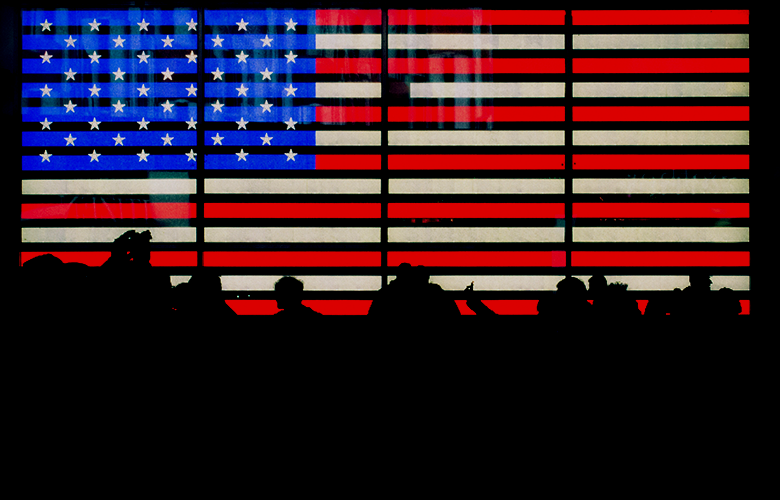
Don’t let your dream of touring or working in the USA become a nightmare! Denise Santisteban works as company manager for the Arts and Ideas Festival in New Haven, Connecticut. TheatreArtLife contributor Dawn Chiang joined Denise to discuss how to get a visa to perform in the USA. Do your homework, plan well in advance and follow these essential tips to success.
TheatreArtLife: Who needs an artist visa when performing in the United States?
Denise Santisteban: Any foreign artist and their support staff who will be performing in the United States. The visa is required for any performances, whether they be paid or unpaid engagements.
There are different categories of artist visas for which an individual or group can apply.
The petitioner is a U.S. citizen or permanent resident, or a U.S. entity (such as a presenting arts organization), that submits the I-129 petition on behalf of an alien individual or performing arts group (known as the beneficiaries).
If the visiting artists are performing at multiple events with multiple arts organizations, one of the organizations acts as the lead petitioner. With the assistance of the other arts organizations, the lead petitioner organizes the entire petition for the tour.
The application is submitted to the US Citizenship and Immigration Services (USCIS) for approval.
What visa types are available?
The Artist visa application (O1B/Individual Artist or P1B/Performing Group) and the Essential support visa application (P1S) are submitted together to the US Citizenship and Immigration Services. However, they are processed as two separate petitions and are separated into two different review procedures.
How long a stay for performances can I make using this visa?
If approved, the visa is valid for the length of the US tour, up to one year in length.
It is possible to be covered by a single visa for multiple entries into the United States for different paid performances, spread over a twelve-month time period. Gaps in the performance itinerary must be explained. Gaps of more than 45 to 60 days raise concerns by the USCIS.
What information is required for a petition?
What is a Labor Consultation letter?
Petitioners must obtain an advisory opinion from the appropriate labor union. This written opinion from the union is included in the petition to USCIS
Relevant performing arts unions from which a labor consultation may be required:
What is the review process?
How much does it cost to submit a petition – and how long will it take?
Per person:
If the performing group is booked at a performing arts festival, often the festival staff will absorb the cost of filing the applications or have someone on their staff who will coordinate this process.
What should I watch out for in submitting a petition?
Where can I find out more information about artist visas?
An excellent resource is artistsfromabroad.org
Created by the League of American Orchestras and Association of Performing Arts Professionals (formerly the Association for Performing Arts Presenters), this website provides detailed information, forms and web links to guide guest artists through the artist visa process. The website also provides information on United States taxation and withholding of tax on foreign performing artists.
So, You Want To Be An American?


Dawn Chiang designed the lighting on Broadway for “Zoot Suit”, was co-designer for “Tango Pasion”, and associate lighting designer for “Show Boat”, “The Life” and the original Broadway production of “La Cage Aux Folles”. Dawn was resident lighting designer for New York City Opera. She worked on the concert tours of Paul Anka, The Carpenters, Diana Ross, and Loggins and Messina. She has designed the lighting at numerous regional theaters including Arena Stage, Oregon Shakespeare Festival, Denver Center Theatre Company, Guthrie Theater, Alliance Theatre, and the Mark Taper Forum. Dawn has earned two Drama-Logue Critics' Awards, two Lighting Designer of the Year Awards (Syracuse Area Live Theatre), and nominations for the San Francisco Drama Critics’ Award, Los Angeles Drama Critics’ Award and the Hewes Design Award from American Theatre Wing. She served on the board of directors for Theatre Communications Group, the national service organization for professional non-profit American theatres, and is a mentor for the Theater Development Fund’s “Open Doors” outreach program. Dawn is a senior consultant with Theatre Projects Consultants, where she served as project manager for two of the largest water based permanent shows — “House of Dancing Water” in Macau and the Han Theatre in central China.
Read Full Profile© 2021 TheatreArtLife. All rights reserved.

Thank you so much for reading, but you have now reached your free article limit for this month.
Our contributors are currently writing more articles for you to enjoy.
To keep reading, all you have to do is become a subscriber and then you can read unlimited articles anytime.
Your investment will help us continue to ignite connections across the globe in live entertainment and build this community for industry professionals.